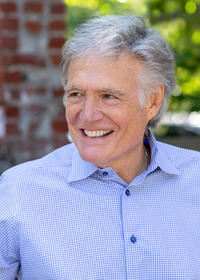The reality of alcohol excess during the holidays can be viewed as affecting two distinct groups: 1) Those
Among problem alcohol users, many want to decrease their consumption–but find they are simply unable. Some may even use the holidays as an excuse to drink more. Others may continue their excessive use, hoping a New Year’s resolution will yield an effective resolve.
Many resources are available for those seeking to manage their problematic alcohol use. In most cases, professional assistance should be at the front end of one’s journey of recovery. For members of the Oregon legal community, I also recommend speaking early on with one of us at the Oregon Attorney Assistance Program (OAAP). Our attorney counselors are familiar with the best resources, understand the practice of law, and are knowledgeable about substance use issues. Our free, voluntary, and fully confidential service is, very simply, an invaluable resource. Our confidential weekly recovery meetings (3x/week) have helped thousands of Oregon legal professionals over the decades.
For those without a history of problematic drinking, but who nevertheless struggle with moderation during the holidays, the most helpful suggestions come from research-based recommendations involving well-being, willpower, and healthy habit formation. The science is clear—We are much more likely to act in accordance with our intentions (e.g., to moderate our alcohol use) when:
- We are well-rested, well-nourished, and not emotionally stressed. The better our well-being, the more likely we will be able to limit our alcohol use.
- We have specifically printed/written down our plans, goals, and intentions (e.g., “I will have only two drinks at tonight’s party.”).
- We have told another person our plans (e.g., “Lisa, I am going to have no more than two drinks at the party tonight.”)
- We monitor our alcohol use and keep a record of dates, circumstances, and amounts consumed (5 ounces of wine, 12 ounces of beer, and 1.5 ounces of distilled spirits each equal one serving.)
- We avoid guilt and shame if we are not initially as successful as we’d like. Research demonstrates that self-compassion, not self-
Though simple and intuitive, these five practices really do work when trying to limit alcohol use during the holidays. Our OAAP counselors are always available to discuss other helpful resources and tools.
Some valuable online suggestions include:
- Tips for Mindful Drinking This Holiday Season, According to Experts https://www.healthline.com/health-news/mindful- holiday-drinking
- Cheers! Tips for Safe Alcohol Use During the Holidays https://www.mpcp.com/articles/healthy-lifestyle/cheers-tips-for- safe-alcohol-use-during-the-holidays/
- 11 Ways to Curb Your Drinking https://www.health.harvard.edu/staying-healthy/11-ways-to- curb-your-drinking
- How to Drink Less During the Holidays https://www.foodnetwork.com/healthyeats/holidays/how-to- drink-less-stay-sober-holidays
- Celebrate the Holidays with Alternatives to Alcohol https://news.umiamihealth.org/en/celebrate-the-holidays-with- alternatives-to-alcohol/
Finally, it is worth noting that demand for non-alcoholic beverages is growing significantly in the marketplace today; many people are opting to not drink at all or limit their alcohol use. When sponsoring holiday events, responsible hosts may want to consider offering a variety of non-alcoholic beverage alternatives.



















_dragonwithlaptop1681501312-18359.jpg)



